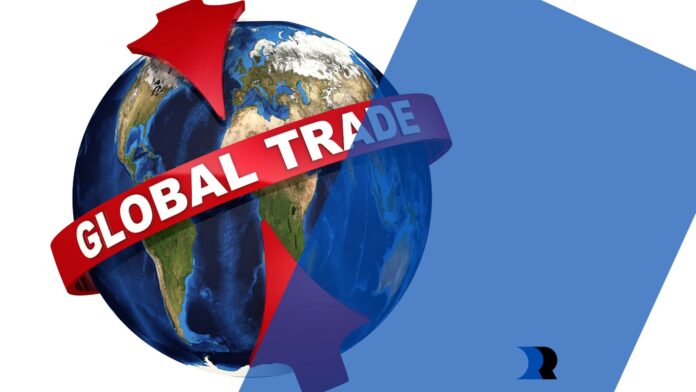In an increasingly interconnected world, the allure of global markets continues to draw businesses beyond their domestic borders. Venturing into international business presents a wealth of opportunities alongside a myriad of challenges. This comprehensive exploration delves into the financial benefits and hurdles of expanding internationally, outlines strategies for mitigating financial risks, and examines the influence of global economic policies on trade and investment decisions.
Financial Benefits and Challenges of International Expansion
Benefits of Going Global
- Market Diversification: International expansion allows businesses to diversify their market presence, reducing dependence on a single economy and mitigating risks associated with domestic market volatility.
- Increased Revenue Potential: Access to new markets can significantly increase a company’s customer base, leading to higher sales and revenue.
- Economies of Scale: Expanding operations globally can result in economies of scale, lowering the cost per unit through increased production efficiency and access to cheaper resources.
Challenges of International Trade
- Currency Fluctuations: Exchange rate volatility can impact the profitability of international operations, affecting pricing, revenue, and margins.
- Compliance and Regulatory Hurdles: Navigating the complex web of regulations and compliance requirements in multiple jurisdictions can be costly and time-consuming.
- Cultural and Language Barriers: Understanding and adapting to local cultures and languages is crucial for success but can pose significant challenges.
Strategies for Managing Financial Risks in Global Trade
- Hedging Against Currency Risk: Utilizing financial instruments such as forwards, futures, and options can protect against unfavorable currency movements.
- Diversification of Market Presence: Expanding into multiple markets can help balance risks, ensuring that a downturn in one market doesn’t disproportionately impact the overall business.
- Robust Financial Analysis and Planning: Employing advanced financial analysis tools, such as those provided by F9-Finance, can offer insights into market trends, risks, and opportunities, guiding more informed decision-making.
The Impact of Global Economic Policies on Trade and Investment
Navigating Economic Policies
Global economic policies, including tariffs, trade agreements, and regulatory standards, and significantly impact international business operations. For instance:

- Tariffs and Trade Wars: Imposed tariffs can increase the cost of exporting or importing goods, necessitating adjustments to pricing strategies and supply chains.
- Trade Agreements: Agreements between countries can facilitate easier access to markets, reduce tariffs, and promote trade, offering opportunities for businesses to expand their international footprint.
- Regulatory Changes: Changes in regulatory policies can affect how companies operate in foreign markets, impacting everything from product standards to taxation.
Strategic Responses to Economic Policies
Businesses must stay agile and responsive to the dynamic global policy landscape. Strategies include:
- Continuous Monitoring of Policy Changes: Staying informed of global economic policy changes can help businesses anticipate and adapt to new trade environments.
- Flexibility in Supply Chain Management: Building a flexible supply chain can mitigate the impact of tariffs and regulatory changes, allowing businesses to adjust their sourcing and distribution strategies as needed.
- Engagement in Policy Advocacy: Participating in industry associations and policy advocacy can provide businesses with a voice in shaping favorable trade policies.
As businesses venture further into the global market, understanding and adapting to the nuanced landscape of international trade becomes increasingly crucial. This continuation delves deeper into strategic considerations, the evolving nature of global markets, and the pivotal role of technology in supporting international business endeavors.
Leveraging Technology for Global Trade Efficiency
Technological Advancements in International Business
The digital revolution has significantly lowered the barriers to international trade, enabling businesses of all sizes to expand their global footprint. Key technological advancements include:
- Blockchain for Secure Transactions: Blockchain technology offers a secure and transparent way to conduct international transactions, reducing fraud and streamlining customs processes.
- Big Data for Market Insights: Leveraging big data analytics helps businesses understand market dynamics, consumer behaviors, and competitive landscapes across different countries.
- E-Commerce Platforms for Global Reach: E-commerce platforms enable businesses to sell products worldwide with minimal physical presence, significantly reducing entry costs into new markets.
Integrating Digital Tools for Financial Management
To successfully manage the financial aspects of international trade, businesses are increasingly relying on digital tools and platforms. Financial analysis software, such as that offered by F9-Finance, plays a crucial role in this integration, providing businesses with the capability to:
- Analyze financial data across different currencies and accounting standards.
- Forecast financial performance under various international trade scenarios.
- Monitor and manage risks associated with foreign exchange rates, international compliance, and market volatility.
Adapting to Consumer Expectations in a Global Marketplace
Understanding Cultural Nuances
Success in international markets requires more than just translating content into different languages; it necessitates a deep understanding of cultural nuances and consumer expectations. Businesses must tailor their products, marketing strategies, and customer service to align with local customs and preferences, which can vary widely from one region to another.
Customizing Products and Services
Customization plays a vital role in meeting diverse consumer needs. This could involve modifying product designs, adjusting pricing strategies, or offering localized services. Success stories from multinational corporations highlight the effectiveness of customization in enhancing customer satisfaction and loyalty, ultimately driving sales in new markets.
Navigating the Changing Landscape of Global Trade Policies
Staying Agile Amid Policy Shifts
The global trade environment is subject to frequent changes in policies, regulations, and tariffs, influenced by geopolitical shifts, economic agreements, and international relations.

Businesses must remain agile, adapting their strategies to navigate these changes effectively. This might involve diversifying supply chains, renegotiating contracts, or shifting manufacturing bases to more favorable locations.
Building Resilience Through Diversification
Diversification is a key strategy for building resilience against the unpredictability of global trade policies. By spreading operations and investments across multiple markets, businesses can mitigate risks associated with any country or region. This approach not only protects against geopolitical and economic uncertainties but also opens up new opportunities for growth and expansion.
The Future of Global Trade: Emerging Trends and Opportunities
Looking ahead, several trends are poised to shape the future of global trade:
- Sustainability and Ethical Trade: There is growing consumer demand for sustainable and ethically sourced products, pushing businesses to adopt greener practices and more transparent supply chains.
- Digital Nomadism and Remote Work: The rise of digital nomadism and remote work opens up new markets for products and services tailored to this mobile lifestyle.
- AI and Automation: Artificial intelligence and automation are expected to revolutionize international logistics and supply chain management, making global trade more efficient and cost-effective.
Conclusion
The landscape of global trade is both challenging and rich with opportunity. As businesses navigate these waters, the keys to success include understanding financial implications, leveraging technology, adapting to cultural nuances, and staying agile amidst changing economic policies. In the ever-evolving world of global trade, the ability to adapt, innovate, and strategically plan will distinguish the leaders of tomorrow.


